Mary Coughlan was out canvassing in Glencolmcille in the recent elections. It felt good and she got a great welcome on the doorsteps. But would it be enough to tempt the 54-year-old back to politics?
The first woman TD for Donegal South West, first woman Minister of Agriculture and first female Táiniste is adamant politics is no longer for her.
All told, Mary Coughlan’s political career spanned 26 years but it was a career she never expected or sought until fate intervened and changed the course of her life.
Mary Coughlan is the eldest of seven children, with five boys between her and the youngest, Deirdre. It was a busy home with her dad Cathal farming and teaching while her mother, previously a psychiatric social worker and hotel owner, remained at home to care for the family.
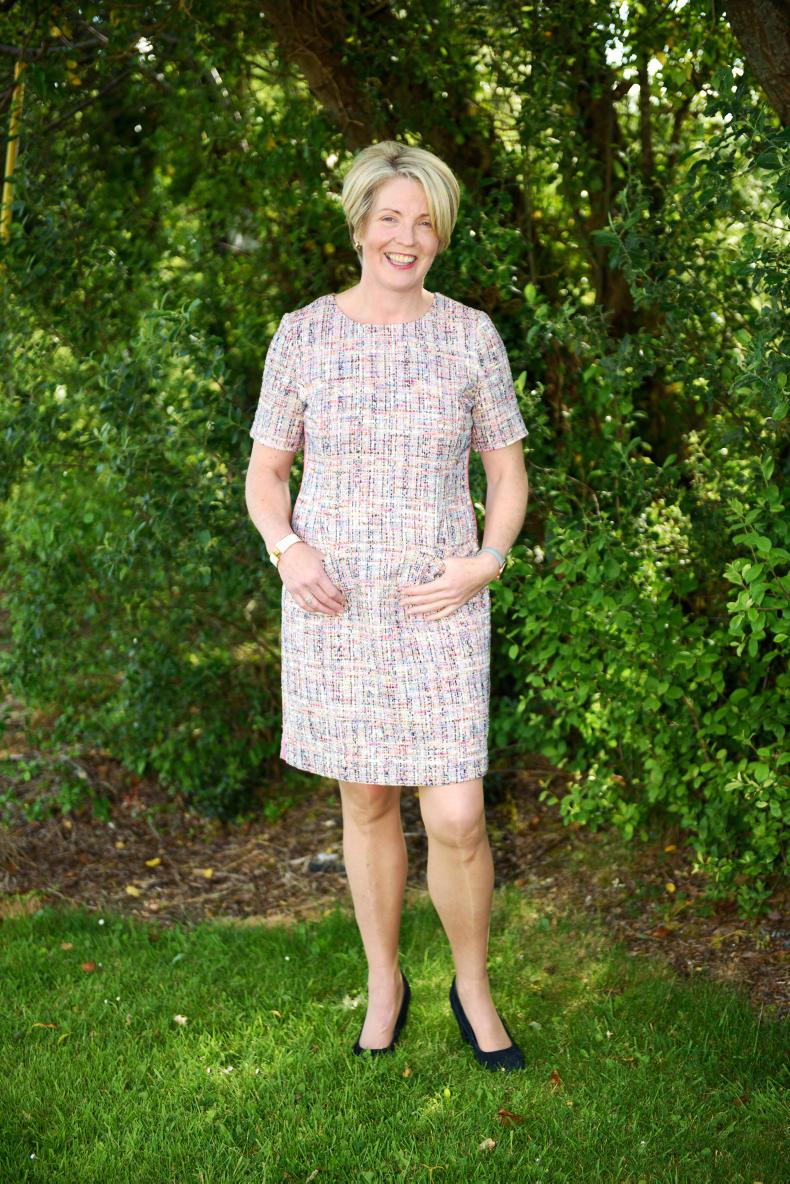
For secondary school, Mary boarded with the Ursuline’s in Sligo. “Hard to believe we are talking about the early 1980s but the local vocational school didn’t have a full curriculum available, so it was to Sligo I was sent. I loved it and the nuns pushed us hard and gave us a well-rounded education.”
Mary went on to study social science and politics in UCD. Little did she know that the next few years would be hugely traumatic for her and the extended Coughlan family.
Tragedy
On St Bridget’s Day 1983 her uncle Clem, a Fianna Fáil TD for Donegal South, was killed in a car crash outside Moate. He was 40 and left behind a widow and seven young children.
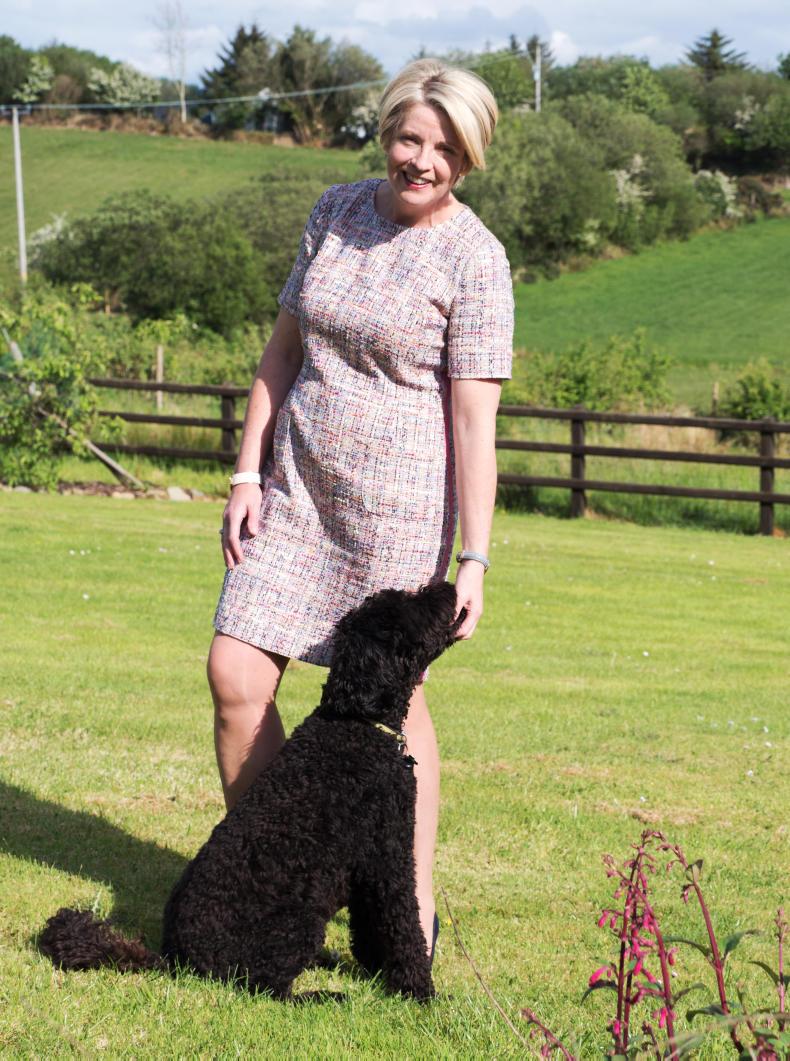
“Losing uncle Clem is something none of us will ever forget. Our dad had supported his brother in politics but it didn’t impact on us as a family. Daddy didn’t want to be in politics but he came under huge pressure to run.”
Cathal Coughlan was elected to the Dail on 13 May 1983. “It was a Friday and my mother was always superstitious of that day.”
With their dad in the Dail, life changed for his family and their kitchen was like a train station. “Dad hated being away from home, from teaching and farming. We were in dairying so the cows had to go and that was hard.”
Cathal Coughlan became ill in May 1986 and died on 21 June that year. “He’d been a smoker but had given them up years earlier. He died in the Mater after a three-week illness, some of his younger children never saw him in that last week of his life. My brother Kevin had to sit a Leaving Cert exam on the day dad was buried. I was 21 and Deirdre, the youngest, was just eight.”
Stepping in
Cathal Coughlan was hardly buried when the phone started to ring for Mary.
“My mother was apprehensive about political life but I went for it and on the day I graduated I took my seat on Donegal County Council. The following February I was elected to the Dail and at 21 I was the youngest TD in the chamber.”

Mary’s children – Cathal (22) and Maeve (20) – are around the same age now. Would she encourage them?
“I’d lock them up if they suggested it,” she says with a laugh. “Maeve would make a great politician but isn’t interested. Cathal wouldn’t touch it with a barge pole.”
In 1987 Fianna Fáil was a minority government kept in power by Alan Dukes and his Tallaght Strategy. TDs were virtually tied to the Dail.
“I remember numerous votes and you just had to be there.”
That had to be hard when friends were having a good time.
“It was ‘character forming’ as my good friends and mentors Jim and Cathal Campbell keep telling me.”
Unlike many of her age, Mary did have a car and regularly brought messages to a few friends from home in Dublin. That’s how she met David, her future husband. “He asked me out on a date and as very few men ever asked me out I accepted the invitation.
They married in 1991 and David transferred from Pearse St to Glenties garda station. It was a tough move going from one of the biggest garda stations with a broad range of work to a quieter station in Donegal.

Then in 1998 he was involved in a car crash and lost a leg. “David liked being out and about and being desk-bound was hard. Thanks to the well-known tenor Ronan Tynan, we were recommended a prosthetic clinic in London which made him much more mobile and that helped.”
Promotion
In 1999 Mary was appointed to her first ministerial post as junior in Arts, Culture and the Gaeltacht. She was 34. “It was more of a challenge than you would think. I had fluent Irish but I am not a native speaker and I worried that my Irish wouldn’t be up to the job.”
She was promoted to cabinet and the Department of Social Welfare in 2002. She describes this as an exciting department with excellent staff who could make decisions. However, it was a baptism of fire.
“Big budgetary cuts were required. This was easier in departments with high capital expenditure, which could be postponed. In Social Welfare it was all current expenditure. I felt my department was seen as an easy target for some cabinet colleagues.”
On the home front, her late mother Marian, sister Deirdre and mother-in-law Sarah Ann were a huge support to David and herself.
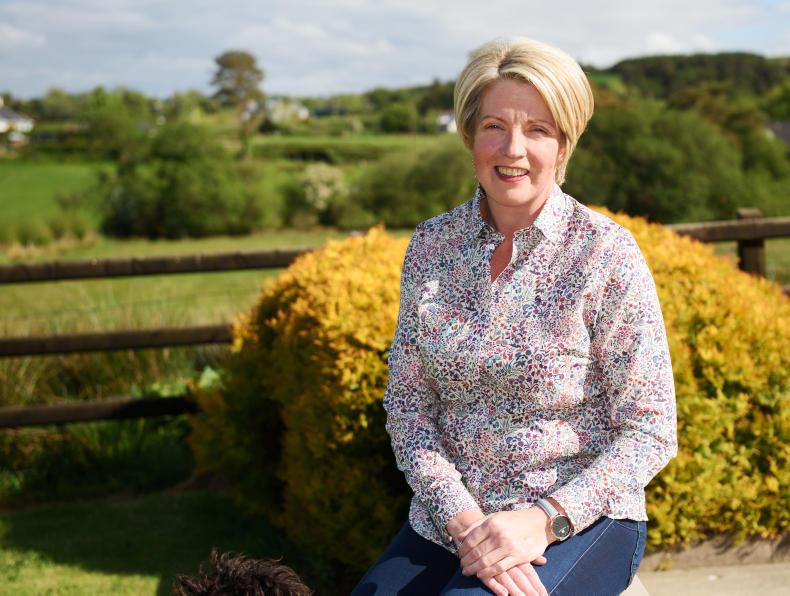
In 2004 Bertie Ahern appointed her to Agriculture. She was the first woman to head up the department. “I was delighted. I was chair of the Fianna Fáil Agriculture committee so I’d had a lot of interaction with farmers and met the minister regularly.”
She loved the EU experience and her involvement in Northern Ireland politics with the cross-border talks. She’s proud of her work on the suckler cow scheme and the capital expenditure approved along with EU funding for small slatted units all around the country.-
“The export agencies, Teagasc, the Food Safety Authority were all great to work with. We had the development of the artisan food sector. Convincing farmers as to the impact of nitrates on watercourses was a challenge.”
Her big regret was the demise of the Irish sugar industry.
Pressure
By 2008 pressure was mounting on Bertie to move aside and Mary refutes the suggestion that she ‘took him out’.
“I was on a Sunday night TV programme and was asked a question about his position. A slight hesitation in answering was blown out of proportion and Bertie resigned later that week.”
Brian Cowan was elected leader of Fianna Fáil and became Taoiseach. He promoted Mary to Enterprise Trade and Employment and she was appointed the first Fianna Fáil woman Tánaiste. In normal circumstances this would have been a great ministry for the northwest, with the possibility of encouraging more Foreign Direct Investment (FDI), jobs and investment in the region. But the reverse of that happened.
“Unlike in agriculture, I felt some State agencies were working in their own silos, so every week I met with Enterprise Ireland, the IDA, Forfas, Udaras na Gaeltachta, Tourism Ireland and senior department officials to try plot a roadmap out of our difficulties. I can honestly say all ministers, including Eamon Ryan of the Greens, worked flat out with honesty and integrity to do what had to be done.”
Consequences
For her own part, Mary knew that many people thought she wasn’t up to the job. To convince them otherwise was like trying to hold back the tide.
“I knew during the financial crises the consequences politically for Fianna Faíl were going to be serious but, regardless, tough decisions had to be made.”
“On a personal level, no newspapers were allowed in our house all through 2008. David also banned TV as the onslaught of negativity was impacting on the children. The media had a herd mentality and they always seemed to be trying to catch us out. I don’t see the same scrutiny of politicians by the media today.”
In the final months of that government, Mary was appointed to a succession of ministries, including Education where she maintained funding for extensions and the summer works scheme. Double points for honours maths was another initiative on her watch.

No returning
By 2011 it was time to face the electorate. “We ran two candidates, which was the wrong strategy as we had a quota in South Donegal. The outcome was demoralising for those who stood by me and for my staff, all of whom lost their jobs.”
Now aged 54, would she run for the party again? “I’m never going back and my family support me in that decision. I gave 26 years to politics and that’s it. I was Táiniste and there’s only one other job to aim at and that’s not going to happen.
Loss
After losing her seat, Mary had time to do ordinary family things. Sadly this was also the year David became ill.
“Coming up to Easter 2012 he had a cough that wouldn’t go away. He was diagnosed with lung cancer on Holy Thursday and died on 1 September.
“It was a nightmare. I looked after him all the time. It was really hard on our children who were just 14 and 12. David had been always there for them, he had reared them and they were mad about him.”
When David was ill, Mary tried to eat properly and do some walking to keep her energy up. She’s kept the habit, walking five to seven kilometres a day, doing Pilates and going to the gym.
She is active in her community, in the St Vincent de Paul and GAA to name a few. She is a member of the British Irish Trade Alliance Board and also chair of the Rural Transport Network. She is not in a relationship and says her best pal is Poppy, her dog. “Nice and uncomplicated, that’s the way I like it.”
Mary Coughlan was out canvassing in Glencolmcille in the recent elections. It felt good and she got a great welcome on the doorsteps. But would it be enough to tempt the 54-year-old back to politics?
The first woman TD for Donegal South West, first woman Minister of Agriculture and first female Táiniste is adamant politics is no longer for her.
All told, Mary Coughlan’s political career spanned 26 years but it was a career she never expected or sought until fate intervened and changed the course of her life.
Mary Coughlan is the eldest of seven children, with five boys between her and the youngest, Deirdre. It was a busy home with her dad Cathal farming and teaching while her mother, previously a psychiatric social worker and hotel owner, remained at home to care for the family.

For secondary school, Mary boarded with the Ursuline’s in Sligo. “Hard to believe we are talking about the early 1980s but the local vocational school didn’t have a full curriculum available, so it was to Sligo I was sent. I loved it and the nuns pushed us hard and gave us a well-rounded education.”
Mary went on to study social science and politics in UCD. Little did she know that the next few years would be hugely traumatic for her and the extended Coughlan family.
Tragedy
On St Bridget’s Day 1983 her uncle Clem, a Fianna Fáil TD for Donegal South, was killed in a car crash outside Moate. He was 40 and left behind a widow and seven young children.

“Losing uncle Clem is something none of us will ever forget. Our dad had supported his brother in politics but it didn’t impact on us as a family. Daddy didn’t want to be in politics but he came under huge pressure to run.”
Cathal Coughlan was elected to the Dail on 13 May 1983. “It was a Friday and my mother was always superstitious of that day.”
With their dad in the Dail, life changed for his family and their kitchen was like a train station. “Dad hated being away from home, from teaching and farming. We were in dairying so the cows had to go and that was hard.”
Cathal Coughlan became ill in May 1986 and died on 21 June that year. “He’d been a smoker but had given them up years earlier. He died in the Mater after a three-week illness, some of his younger children never saw him in that last week of his life. My brother Kevin had to sit a Leaving Cert exam on the day dad was buried. I was 21 and Deirdre, the youngest, was just eight.”
Stepping in
Cathal Coughlan was hardly buried when the phone started to ring for Mary.
“My mother was apprehensive about political life but I went for it and on the day I graduated I took my seat on Donegal County Council. The following February I was elected to the Dail and at 21 I was the youngest TD in the chamber.”

Mary’s children – Cathal (22) and Maeve (20) – are around the same age now. Would she encourage them?
“I’d lock them up if they suggested it,” she says with a laugh. “Maeve would make a great politician but isn’t interested. Cathal wouldn’t touch it with a barge pole.”
In 1987 Fianna Fáil was a minority government kept in power by Alan Dukes and his Tallaght Strategy. TDs were virtually tied to the Dail.
“I remember numerous votes and you just had to be there.”
That had to be hard when friends were having a good time.
“It was ‘character forming’ as my good friends and mentors Jim and Cathal Campbell keep telling me.”
Unlike many of her age, Mary did have a car and regularly brought messages to a few friends from home in Dublin. That’s how she met David, her future husband. “He asked me out on a date and as very few men ever asked me out I accepted the invitation.
They married in 1991 and David transferred from Pearse St to Glenties garda station. It was a tough move going from one of the biggest garda stations with a broad range of work to a quieter station in Donegal.

Then in 1998 he was involved in a car crash and lost a leg. “David liked being out and about and being desk-bound was hard. Thanks to the well-known tenor Ronan Tynan, we were recommended a prosthetic clinic in London which made him much more mobile and that helped.”
Promotion
In 1999 Mary was appointed to her first ministerial post as junior in Arts, Culture and the Gaeltacht. She was 34. “It was more of a challenge than you would think. I had fluent Irish but I am not a native speaker and I worried that my Irish wouldn’t be up to the job.”
She was promoted to cabinet and the Department of Social Welfare in 2002. She describes this as an exciting department with excellent staff who could make decisions. However, it was a baptism of fire.
“Big budgetary cuts were required. This was easier in departments with high capital expenditure, which could be postponed. In Social Welfare it was all current expenditure. I felt my department was seen as an easy target for some cabinet colleagues.”
On the home front, her late mother Marian, sister Deirdre and mother-in-law Sarah Ann were a huge support to David and herself.

In 2004 Bertie Ahern appointed her to Agriculture. She was the first woman to head up the department. “I was delighted. I was chair of the Fianna Fáil Agriculture committee so I’d had a lot of interaction with farmers and met the minister regularly.”
She loved the EU experience and her involvement in Northern Ireland politics with the cross-border talks. She’s proud of her work on the suckler cow scheme and the capital expenditure approved along with EU funding for small slatted units all around the country.-
“The export agencies, Teagasc, the Food Safety Authority were all great to work with. We had the development of the artisan food sector. Convincing farmers as to the impact of nitrates on watercourses was a challenge.”
Her big regret was the demise of the Irish sugar industry.
Pressure
By 2008 pressure was mounting on Bertie to move aside and Mary refutes the suggestion that she ‘took him out’.
“I was on a Sunday night TV programme and was asked a question about his position. A slight hesitation in answering was blown out of proportion and Bertie resigned later that week.”
Brian Cowan was elected leader of Fianna Fáil and became Taoiseach. He promoted Mary to Enterprise Trade and Employment and she was appointed the first Fianna Fáil woman Tánaiste. In normal circumstances this would have been a great ministry for the northwest, with the possibility of encouraging more Foreign Direct Investment (FDI), jobs and investment in the region. But the reverse of that happened.
“Unlike in agriculture, I felt some State agencies were working in their own silos, so every week I met with Enterprise Ireland, the IDA, Forfas, Udaras na Gaeltachta, Tourism Ireland and senior department officials to try plot a roadmap out of our difficulties. I can honestly say all ministers, including Eamon Ryan of the Greens, worked flat out with honesty and integrity to do what had to be done.”
Consequences
For her own part, Mary knew that many people thought she wasn’t up to the job. To convince them otherwise was like trying to hold back the tide.
“I knew during the financial crises the consequences politically for Fianna Faíl were going to be serious but, regardless, tough decisions had to be made.”
“On a personal level, no newspapers were allowed in our house all through 2008. David also banned TV as the onslaught of negativity was impacting on the children. The media had a herd mentality and they always seemed to be trying to catch us out. I don’t see the same scrutiny of politicians by the media today.”
In the final months of that government, Mary was appointed to a succession of ministries, including Education where she maintained funding for extensions and the summer works scheme. Double points for honours maths was another initiative on her watch.

No returning
By 2011 it was time to face the electorate. “We ran two candidates, which was the wrong strategy as we had a quota in South Donegal. The outcome was demoralising for those who stood by me and for my staff, all of whom lost their jobs.”
Now aged 54, would she run for the party again? “I’m never going back and my family support me in that decision. I gave 26 years to politics and that’s it. I was Táiniste and there’s only one other job to aim at and that’s not going to happen.
Loss
After losing her seat, Mary had time to do ordinary family things. Sadly this was also the year David became ill.
“Coming up to Easter 2012 he had a cough that wouldn’t go away. He was diagnosed with lung cancer on Holy Thursday and died on 1 September.
“It was a nightmare. I looked after him all the time. It was really hard on our children who were just 14 and 12. David had been always there for them, he had reared them and they were mad about him.”
When David was ill, Mary tried to eat properly and do some walking to keep her energy up. She’s kept the habit, walking five to seven kilometres a day, doing Pilates and going to the gym.
She is active in her community, in the St Vincent de Paul and GAA to name a few. She is a member of the British Irish Trade Alliance Board and also chair of the Rural Transport Network. She is not in a relationship and says her best pal is Poppy, her dog. “Nice and uncomplicated, that’s the way I like it.”









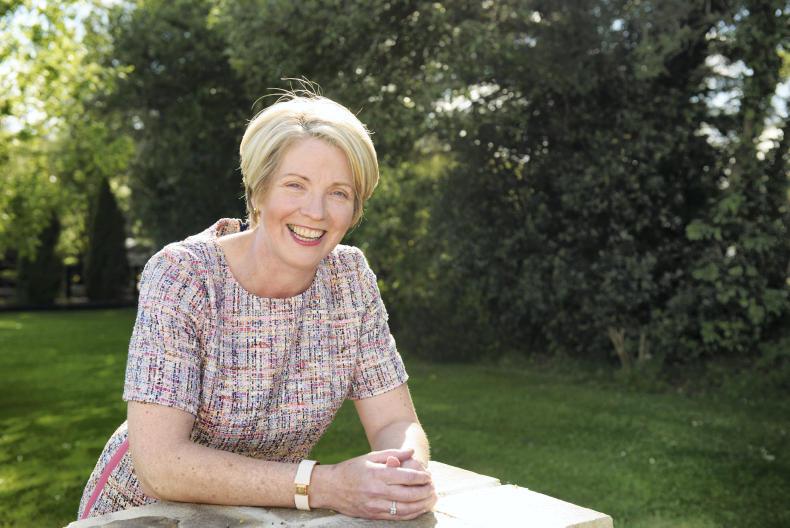

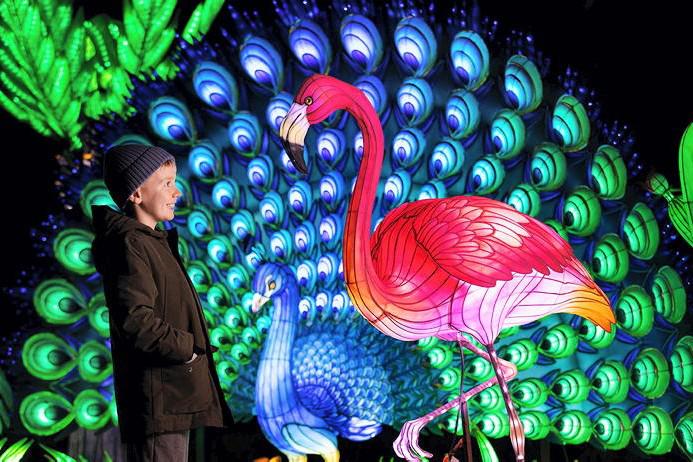
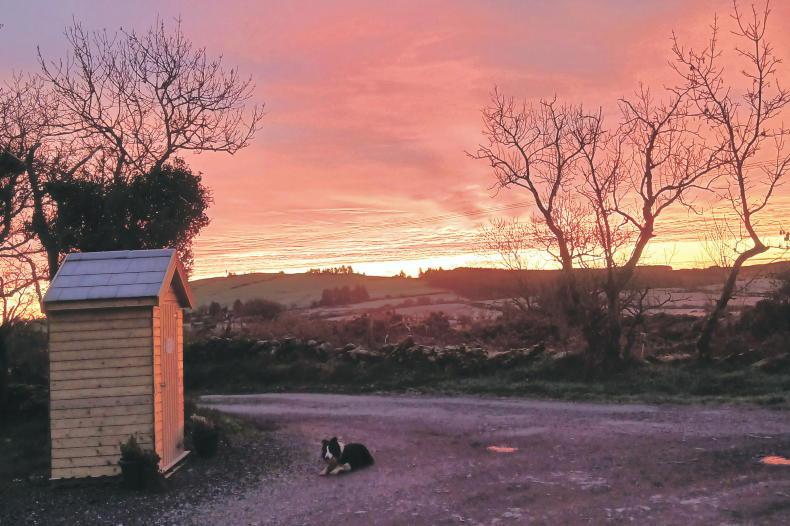
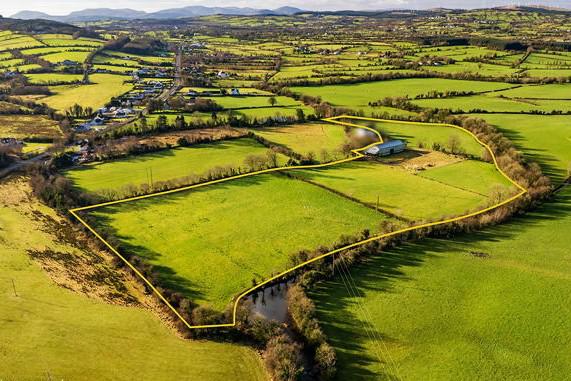
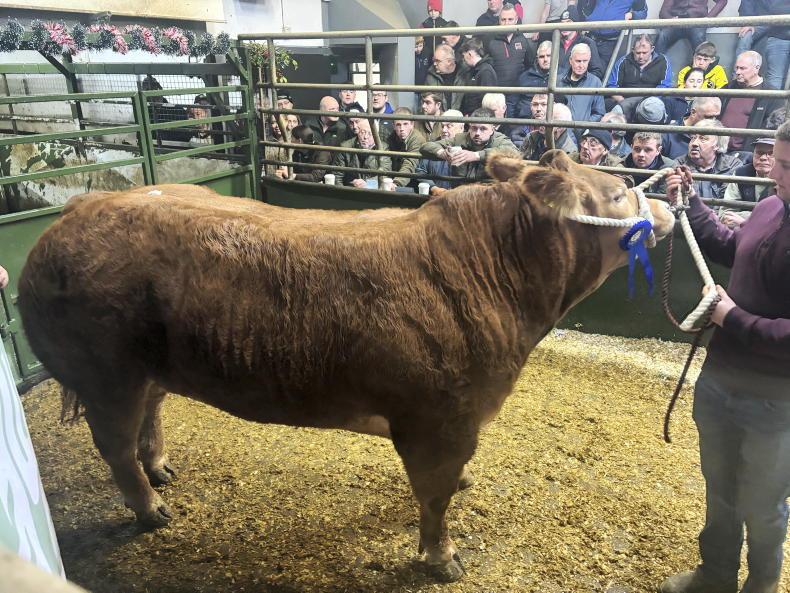
SHARING OPTIONS